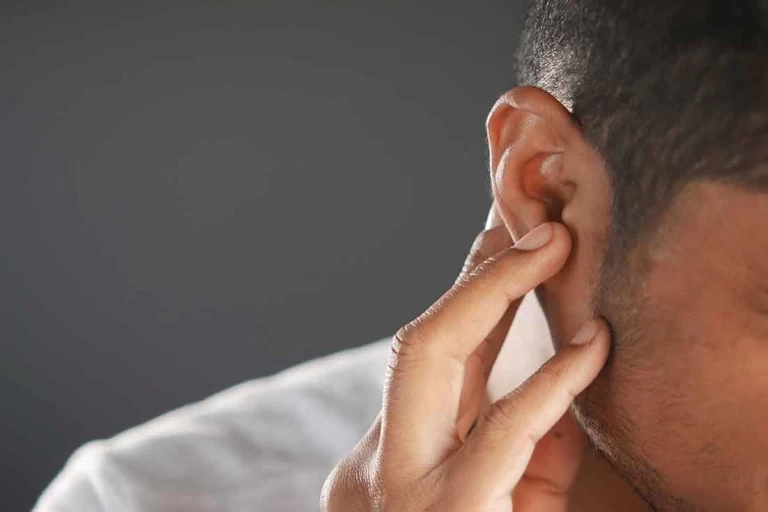
Ménière’s Disease is a chronic condition that affects the inner ear and is characterized by a debilitating set of symptoms including vertigo, hearing loss, tinnitus, and a sensation of fullness in the ear. Traditional treatments often focus on medication, dietary changes, and lifestyle adjustments, but many patients still struggle to find lasting relief. In recent years, an emerging approach has gained attention: addressing upper cervical misalignment through chiropractic care. This blog explores how upper cervical misalignment could play a role in Ménière’s disease and how chiropractic adjustments might offer a new avenue for symptom management and relief.
Table of Contents
Understanding Ménière’s Disease
Ménières disease affects the inner ear, specifically the labyrinth, which is responsible for both hearing and balance. The disease manifests through:
- Vertigo: Severe, spinning sensations that can last from minutes to hours and may be accompanied by nausea and vomiting.
- Hearing Loss: Fluctuating hearing loss that can become progressive over time.
- Tinnitus: Persistent ringing, buzzing, or hissing sounds in the ears.
- Aural Fullness: A sensation of pressure or fullness in one or both ears.
Causes and Risk Factors:
The exact cause this disease remains elusive, but it is often associated with an abnormal buildup of endolymph fluid in the inner ear. Possible contributing factors include:
- Genetic Predisposition: A family history of Ménière’s disease can increase the risk.
- Autoimmune Disorders: The immune system might mistakenly attack the inner ear structures.
- Infections: Viral or bacterial infections could trigger the disease.
- Environmental Factors: Stress, allergies, and dietary factors may play a role.
Conventional Treatments for Ménière’s Disease
Standard treatment approaches aim to manage symptoms and reduce the frequency and severity of episodes:
- Medications:
- Diuretics: To help reduce fluid buildup.
- Anti-Vertigo Drugs: To alleviate dizziness and associated nausea.
- Anti-Nausea Medications: To manage symptoms of nausea.
2. Dietary Changes:
- Low-Sodium Diet: To reduce fluid retention in the inner ear.
- Limiting Caffeine and Alcohol: To avoid exacerbating symptoms.
3. Lifestyle Adjustments:
- Stress Management: Techniques such as relaxation exercises to reduce stress, which may trigger symptoms.
- Avoidance of Triggers: Identifying and avoiding personal triggers for Ménière’s episodes.
4. Physical Therapy:
- Vestibular Rehabilitation Therapy (VRT): Exercises designed to improve balance and reduce dizziness.
5. Surgical Options:
- Endolymphatic Sac Decompression: To reduce fluid buildup in the inner ear.
- Labyrinthectomy: A last-resort surgery to remove part of the inner ear to alleviate symptoms.
Introduction to Upper Cervical Chiropractic Care a Promising Alternative
Upper cervical chiropractic care focuses on the alignment and health of the upper cervical spine—specifically, the atlas (C1) and axis (C2) vertebrae. The core principle is that misalignments in these vertebrae can affect overall health by influencing the nervous system and potentially contributing to various conditions.
Core Principles of Upper Cervical Chiropractic Care:
- Spinal Alignment: The main goal is to correct misalignments in the upper cervical spine to restore normal function and support overall health.
- Nervous System Health: Proper alignment ensures optimal communication between the brain and the body, which is vital for maintaining balance and sensory processing.
- Holistic Approach: Emphasizes the interconnectedness of bodily systems and promotes wellness through non-invasive techniques.
The Link Between Upper Cervical Misalignment and Ménière’s Disease
The idea that upper cervical misalignments could impact Ménière’s disease stems from the intricate relationship between spinal alignment, nervous system function, and inner ear health. Here’s how misalignments in the upper cervical spine may contribute to Ménière’s disease:
1. Nerve Compression and Irritation
Impact on Ménière’s Disease:
- Nerve Pathways: The upper cervical spine houses crucial nerves that transmit signals between the brain and the rest of the body. Misalignments in the atlas (C1) and axis (C2) can lead to nerve compression or irritation. This interference might disrupt the nervous system’s ability to regulate balance and hearing functions, potentially exacerbating Ménière’s symptoms.
- Vertigo and Dizziness: Misalignments can influence the body’s equilibrium and sensory processing, leading to increased episodes of vertigo and dizziness.
Chiropractic Approach:
- Precision Adjustments: Chiropractors use precise, gentle adjustments to the upper cervical spine to correct misalignments and relieve nerve pressure. This approach aims to restore normal nervous system function and improve symptoms related to Ménière’s disease.
2. Impact on Blood Flow and Circulation
Impact on Ménière’s Disease:
- Cervical Vertebrae and Blood Flow: Misalignments in the upper cervical spine can affect blood flow to the brain and inner ear. Proper alignment ensures optimal circulation, which supports brain and inner ear health. Disrupted blood flow can contribute to symptoms such as dizziness and tinnitus.
- Reduced Fluid Drainage: Proper spinal alignment may enhance the drainage of fluid from the inner ear, potentially alleviating some of the symptoms associated with Ménière’s disease.
Chiropractic Approach:
- Enhancing Circulation: Chiropractic adjustments aim to restore proper alignment, which can improve blood flow and circulation to the brain and inner ear. This may help in managing Ménière’s symptoms by supporting better fluid balance and reducing dizziness.
3. Balancing the Autonomic Nervous System
Impact on Ménière’s Disease:
- Autonomic Nervous System Function: The autonomic nervous system controls involuntary functions, including balance and sensory processing. Misalignments in the upper cervical spine can disrupt this system, potentially exacerbating symptoms like vertigo and tinnitus.
- Systemic Balance: Addressing misalignments may help balance the autonomic nervous system, which could contribute to a reduction in Ménière’s symptoms.
Chiropractic Approach:
- Restoring Balance: Chiropractic adjustments aim to restore normal function to the autonomic nervous system, improving balance and sensory processing. This approach can potentially reduce symptoms such as dizziness and tinnitus.
4. Improving Overall Function and Mobility
Impact on Ménière’s Disease:
- Neck Mobility: Misalignments in the upper cervical spine can restrict neck mobility, impacting the body’s ability to adjust to changes in position and contributing to symptoms like vertigo. Improving neck mobility can enhance overall function and stability.
- Postural Correction: Proper alignment and improved mobility can contribute to better posture and balance, which may help in managing Ménière’s symptoms.
Chiropractic Approach:
- Adjustments and Exercises: Chiropractors may combine adjustments with exercises to improve neck mobility and support overall function. This holistic approach can contribute to reducing symptoms and enhancing quality of life.
Evidence Supporting Upper Cervical Chiropractic Care for Ménière’s Disease
While research specifically targeting upper cervical chiropractic care for Ménière’s disease is limited, several studies and patient testimonials suggest potential benefits:
- Clinical Studies:
- Research in Journal of Chiropractic Medicine: Some studies published in this journal have indicated that chiropractic care, including upper cervical adjustments, can lead to improvements in vertigo symptoms. Although these studies are not specific to Ménière’s disease, they highlight the potential for chiropractic care to benefit individuals with similar symptoms.
- Journal of Manipulative and Physiological Therapeutics: Research in this journal suggests that chiropractic adjustments can be beneficial for managing dizziness and improving quality of life. While not specific to Ménière’s disease, these findings support the potential effectiveness of chiropractic care for related symptoms.
- Patient Testimonials:
- Success Stories: Many patients with Ménière’s disease have reported significant relief from symptoms following upper cervical chiropractic care. Testimonials often highlight reductions in dizziness, improved balance, and enhanced overall well-being.
What to Expect During Upper Cervical Chiropractic Care for Ménière’s Disease
If you’re considering upper cervical chiropractic care for Ménière’s disease, here’s what you can expect:
1. Initial Consultation
Health Assessment:
- Detailed History: The chiropractor will take a comprehensive health history, including information about your Ménière’s symptoms, medical history, and previous treatments.
- Physical Examination: A thorough physical examination will be conducted to assess spinal alignment, posture, and overall function.
Diagnostic Imaging:
- X-Rays or MRI: Diagnostic imaging may be used to evaluate the alignment of the atlas and axis vertebrae and identify any misalignments or structural issues.
2. Customized Treatment Plan
Personalized Approach:
- Adjustment Plan: Based on the assessment and diagnostic findings, the chiropractor will develop a customized treatment plan that includes specific adjustments to the upper cervical spine correcting the cause of Ménière’s.
- Supplementary Therapies: The treatment plan may also include supplementary therapies such as soft tissue work, exercises, and lifestyle recommendations.
Follow-Up Care:
- Regular Appointments: Follow-up appointments will be scheduled to monitor progress and make any necessary adjustments to the treatment plan. The chiropractor will work with you to track improvements and adjust the approach as needed.
Schedule with Lavender Family Chiropractic
We offer complimentary consultations to help you with your Ménière’s. Click the link below to schedule with us!
https://intake.chirohd.com/new-patient-scheduling/724/lavender-family-chiropractic
Learn More!
Check out our website www.chiropractorsarasotaflorida.com to learn more about our clinic!
We also service Bradenton, Lakewood Ranch, Palmetto, Ruskin, Tampa, St. Pete, Ellington, Venice, Osprey, Myakka Village



